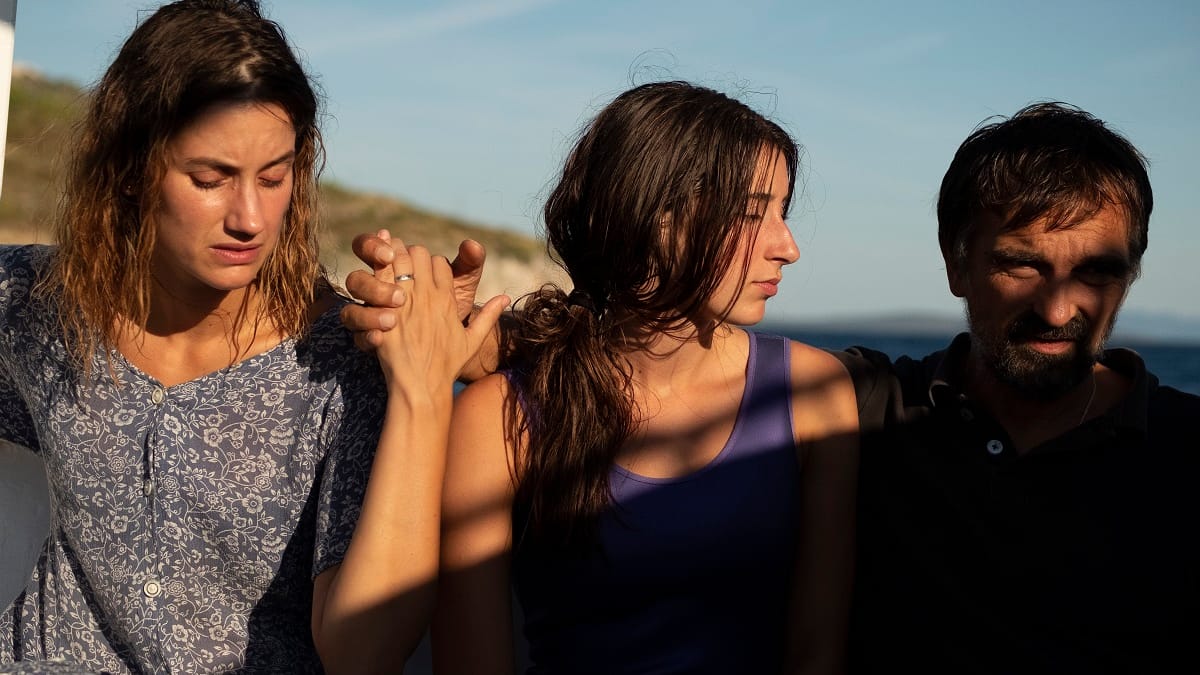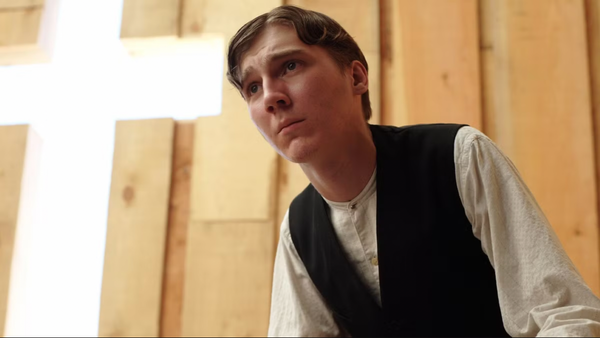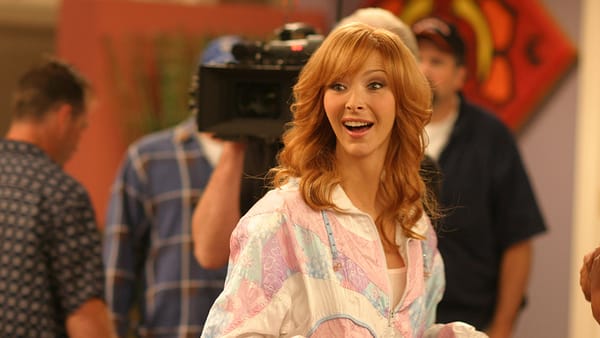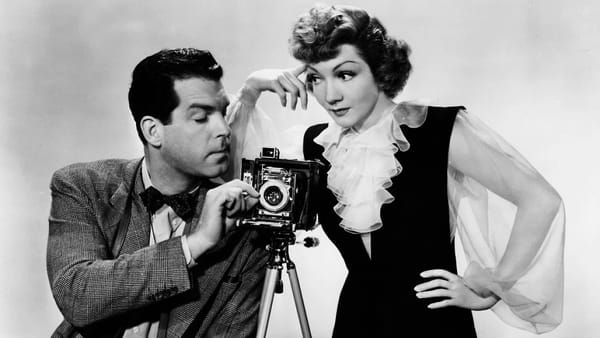Simple Things are Complicated

Croatian director Antoneta Alamat Kusijanović on her film Murina
Over the course of a few days, existing tensions between a father and his teenage daughter escalate to a point of crisis. It sounds like a straightforward coming-of-age story, but it is not. Here, the person throwing tantrums and acting irrationally isn’t the growing young woman, torn apart by hormonal changes and worries about her future — it’s her father.
To some viewers, however, nothing happens in Murina: “Some people in Croatia tell me ‘What is it about? It's just a regular family,’ and I go like, ‘fuck!’” Director Antoneta Alamat Kusijanović is amused and a little frustrated by the response that her feature debut has been met with in some corners of the world, and with good reason. Murina is entirely shot from the perspective of Julija (Gracija Filipović) as she navigates the bullying behaviour of her father, Ante (Leon Lucev), with little help from her meek mother Nela (Danica Curcic). Standing up to him is not without consequences, but Julija is not inclined to let him steamroll over her like he does her mother. When the rich, handsome, kind family friend Javier (Cliff Curtis) comes for a visit, Julija is under increased pressure from Ante, but she also knows that children can sometimes get away with certain things whenever guests are around.
“In Europe or, let’s say, in the West, some people are like ‘What the fuck? This is exaggerated,’” Kusijanović explains when I ask her whether, as I suspected, some viewers might look at this violent father and the enabling behaviour of nearly everyone around him, and feel like they are watching science-fiction. “But there are regions of the world that are very affected by it: Korea, Turkey, Greece, Macedonia. People tell me, ‘no one has portrayed my father like that before,’ or ‘Oh, this is my mother!’ ‘Oh, my God, now I understand why she couldn't leave,’ or, ‘my family was just like that, we had to always behave a certain way whenever someone else would come.’ I have hundreds of emails and messages like this, from women and from men. But there's a very big number of people who still feel that the movie is about nothing — and these are the people the movie is for!”
So why this muted response? “People very easily hide behind the word ‘mentality,’” the director explains. “They put everything under that banner. You beat your child? That’s your mentality, that's how it is in the Balkans. You cheat on your wife? — well, you know, we are like that! That's in our mentality, we always cheat a little bit. We cheat with taxes, we cheat a little bit here, we cheat a little bit there. We do nothing, we’re a bit lazy — that’s all our mentality. But how many things are part of a people’s mentality?!”
Perhaps this is a clue as to why Martin Scorsese came on board as executive producer on the film. Much of the American director’s best work lays bare, with a mix of awe and revulsion, the principles rooted in violence and the pursuit of power that his characters live by, often to their own detriment. In Murina, “everything that happens comes from simmering emotions that the characters are no longer able to contain,” Kusijanović adds, “and the plot is born from characters’ dilemmas and desires” — the same could easily be said of, say, Taxi Driver or, to a degree, Goodfellas. “Marty saw more than one cut, including those that were not as polished,” Kusijanović explains, “but he did say that he understands these people, these characters, and we did connect on that level.”
For all of its specificity, Murina does avoid overt references to the kind of Croatian signifiers usually present in arthouse films from the region, chief among them the war in Ex-Yugoslavia. “War is a very important aspect of our lives, but it's not all of our lives,” says Kusijanović. “It's like death. When someone dies, you’re very acutely present in the reality of their death. But you do not always think of that single death for the rest of your life, because it's not really within your consciousness and your present. It's the same with the war — it's omnipresent, but it's in the back. We don't talk about the war during coffee all the time, you know?” As she herself points out, viewers with more knowledge of those events and their consequences on the region can find very clear echoes of it in the film: “There's definitely a post-war mentality, a transitional feeling, and the sense of opportunism that comes from the war. The family’s economic situation is also an aftereffect of it. And a lot of Ante’s fears come, I believe, from not being able to confront a real enemy.”
These dynamics, forged in the fire of history, form the structure upon which Julija and her parents construct themselves and their lives. But the film’s power lies in its steadfast faithfulness to Julija, its commitment to capturing every slight change in her emotions and state of mind. Cinematographer Hélène Louvart, Kusijanović adds, was crucial to this process. “What she brought to the film was the ability to remain anchored to human nature, to human behaviour,” she explains. “Of course, a lot was planned for logistical reasons — you can’t just go and shoot on a boat without preparation — but we always had in mind to follow the character, to follow the emotion and where the desire leads you, and for that reason, we were always focused on making this a real place as opposed to a holiday. Julija’s life is a hard life, and that was something Hélène and I always talked about.”
Through Julija, we also come to understand what makes her parents tick, even if the reasons behind their behaviours are never fully laid out. “People are going through hormonal imbalances and changes, desires, remorse, regret, isolation, feelings of imprisonment, everywhere,” says Kusijanović, “and I really wanted the film to be about these universal emotions that exist in every culture. The difference is that, in some countries like Croatia, we call those feelings a ‘mentality,’ and because of that, they're accepted, taken as a given. What’s interesting and important for me is, for example, when a white man in his sixties, from Texas, who’s not a girl coming of age, understands the film and feels with it. When that man can see his father in it.”
In that sense, in eschewing the basic tenets of representation as the concept has come to be understood today (essentially a one-to-one equivalence between characters and audiences), but also in its unwavering allegiance to its lead character, Murina almost feels old school, in the best way. While it is an unambiguously feminist film, powerfully making the case that not even tradition or “mentality” justifies harmful parental behaviours, the film also feels nourished by character-driven cinema of yore and undermines the old adage that “they don’t make them like this anymore.” It follows that Murina cries out to be seen on the big screen, something Kusijanović feels passionate about, and not just in a moral, abstract sense: “we are so forcefully encouraged to watch films on the small screen right now,” she says, “but things like a twinkle of the eye, or a movement of the lip — you can't see them well on a small screen. The big screen, on the other hand, focuses your attention on one spot, and sometimes the things on the sides have to be left out naturally, to remain on the periphery of your vision. On a laptop, you see everything, so everything is almost equally important, unless the film is very heavy handed.”
Murina’s style is subtle, almost naturalistic, its narrative deceptively straightforward, and you could be forgiven for thinking it was simple to make. “Very simple things are very complicated, and it takes a lot of work to make them look simple,” says Kusijanović. “It's just five people in their bathing suits on a beach — but of course, you cannot mic up people on a beach in their bathing suits. That means more people in sound, and more work in post production. Then there are the waves, and then there are boats that move, and then there's the camera that moves on the boat, and the actors who move on the boat, and the sea that moves differently from the boat... It's a complete shit show! And to organise all that, behind the camera, we have more than 70 people. It’s a big team to make everything look simple, seamless, fluid and natural.”
Simple things are complicated, and complicated things are simple: in the cinema, the careful compositions, sound design, and seemingly simple story of Murina combine for an extremely powerful experience. At the same time, Julija's apparently complicated future, torn between her parents’ expectations, her own warped desires, and her limited means, comes down to a chillingly simple decision: to sink, or to swim.



